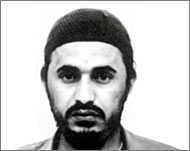US: No let-up in Iraqi resistance
US officials have said in published newspaper interviews that coalition forces have failed to reduce the level of resistance operations in Iraq.

In an interview with The New York Times on Friday a former US occupation official said US forces in Iraq had failed to reduce the number of “hard-core Saddamists” since the US occupied Iraq last year.
The official, who spoke on condition of anonymity, estimated the number of fighters in Iraq has remained constant at 4000-5000, suggesting that all those killed and captured are promptly replaced.
“I have seen no evidence that the number has changed,” said the official, who spent more than a year in Iraq with the just-dissolved occupation authority, and had access to top intelligence.
He said fighters loyal to former president Saddam Hussein were more dangerous than foreign fighters because they were backed by an outer ring of “less hard-core” supporters, including teenagers and others paid to attack US troops.
The former official, who spoke to a small group of reporters
outside the White House on Thursday, also said it has proven “almost impossible to penetrate” the network led by al-Qaida operative Abu Musab al-Zarqawi, but that the group posed less of a threat because it is reviled in much of Iraq.
The Americans are offering an increased $25 million reward for his capture.
Iranians ‘active’
The official also said Syria and Iran had stepped up their
activity in Iraq, adding that Iran perhaps has been financing
Muqtada al-Sadr, the Iraqi Shia Muslim leader whose militias keep attacking US forces despite a truce three weeks ago.
 |
|
The US is offering a $25 million |
The US official said the Iranians in Iraq had “become more active over time, and not helpful,” but said that many more foreign fighters were crossing into Iraq from Syria than Iran.
He said the fighters were mostly Syrian – there were Sudanese, Yemenis, some Saudis and then the odd Egyptian and Moroccan.”
The daily said the senior US official said during his interview that he was repeatedly “disappointed we haven’t had better insight into the command and control of the insurgents.”
Well-organised
Meanwhile, former US administrator, Paul Bremer said al-Zarqawi has set up a dangerous, “professional operation” in Iraq that will likely be active long after other insurgent groups are “defeated”.
Bremer told the Washington Times on Friday that members of al-Zarqawi’s network were mostly trained in al-Qaida camps in Afghanistan and arrived in Iraq “not as undisciplined jihadists, but as professionally trained killers.”
The network is “in the low hundreds in Iraq, if that many” Bremer was quoted as saying. He described them as non-Iraqis from Yemen, Sudan and some from Saudi Arabia.
Bremer said the United States gained some insight into the
organisation after some of its members were captured.
|
“He (al-Zarqawi) is actively involved in selecting targets. He’s quite careful with his operational security” Former US administrator |
‘Professional operation’
“It’s a very professional operation. Very dangerous,” he told the newspaper. In describing how well organised the group is in Iraq, Bremer said it deployed a Yemeni human bomber to blow up a police station just 48 hours after the man entered the country.
“It showed a very high degree of organisation that you could have a guy come across the border and within two days marry him up with a rather elaborate plot. Targets. A thousand-pound bomb built into his car. He has the car. He knows the target. It’s quite impressive,” Bremer said in the interview.
In the December incident, the Yemenite was shot and captured after his bomb failed to explode, The Washington Times said.
“He is actively involved in selecting targets,” Bremer told
the newspaper. “He’s quite careful with his operational
security. Sooner or later, he’ll make a mistake and we’ll get
him.”